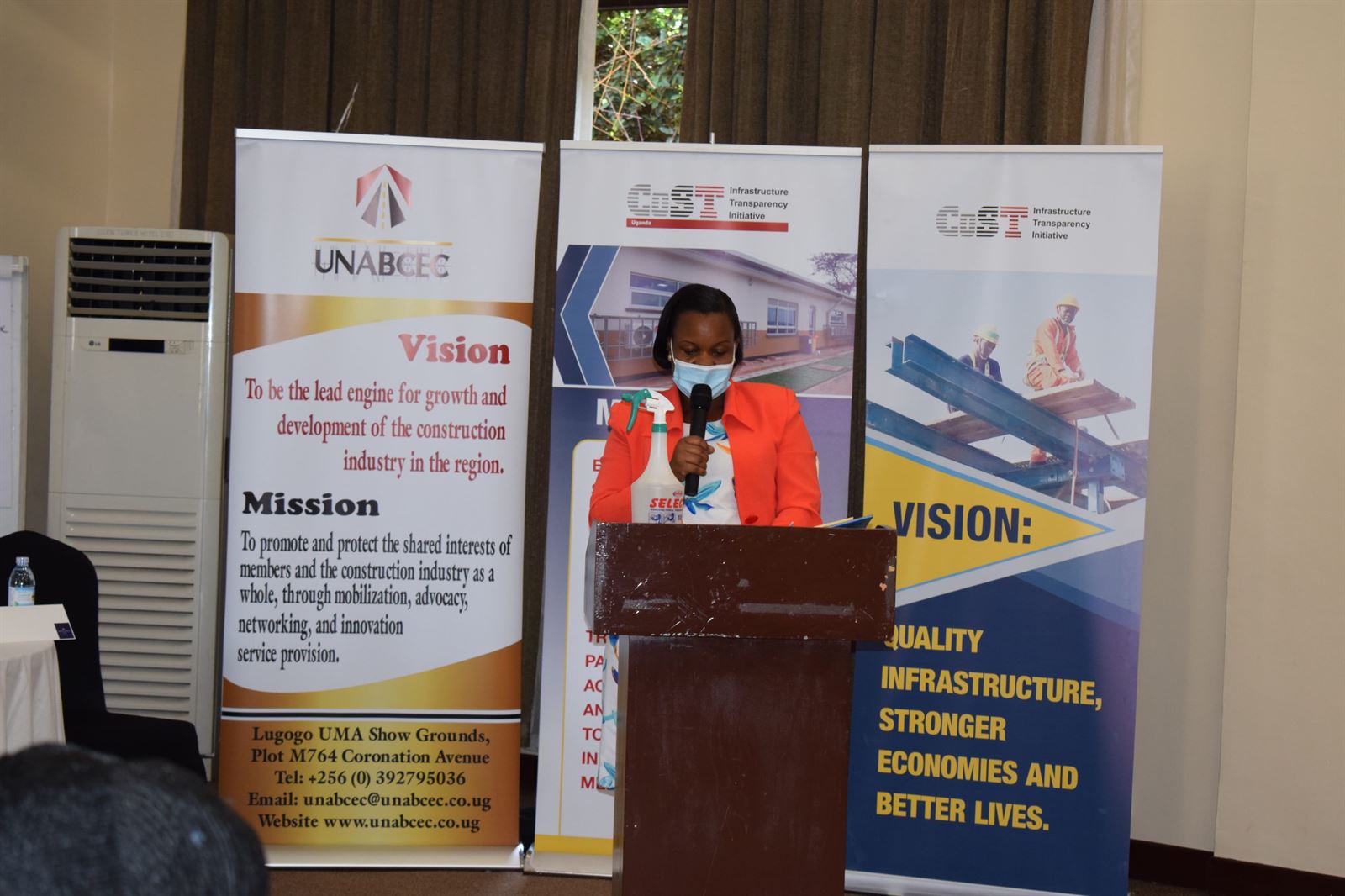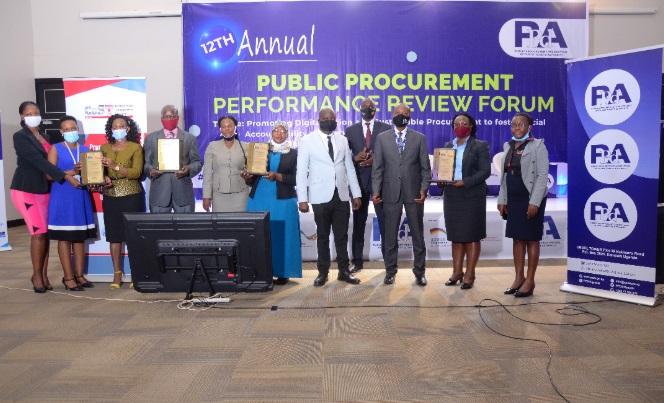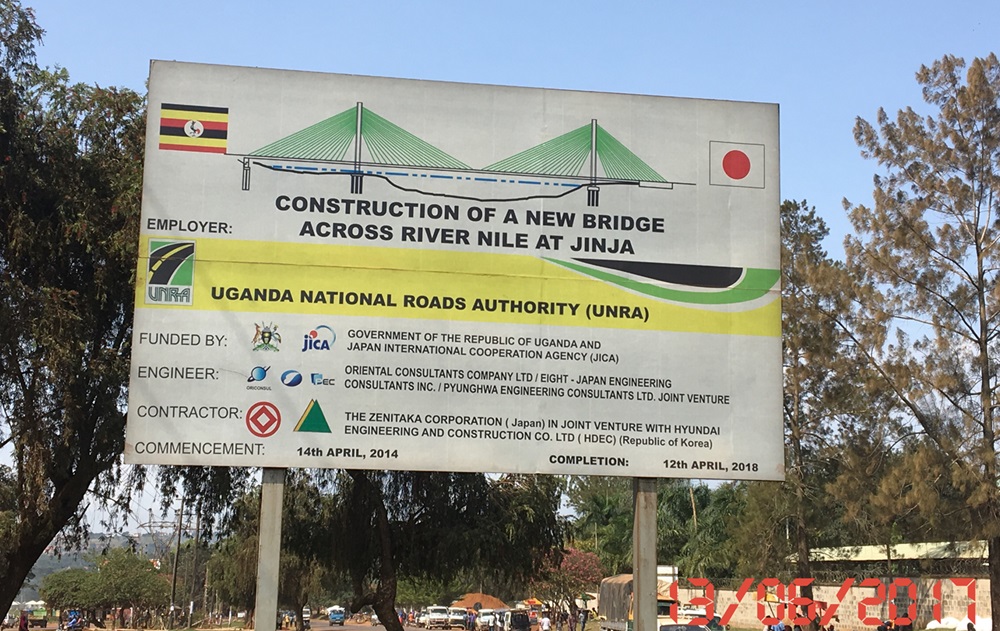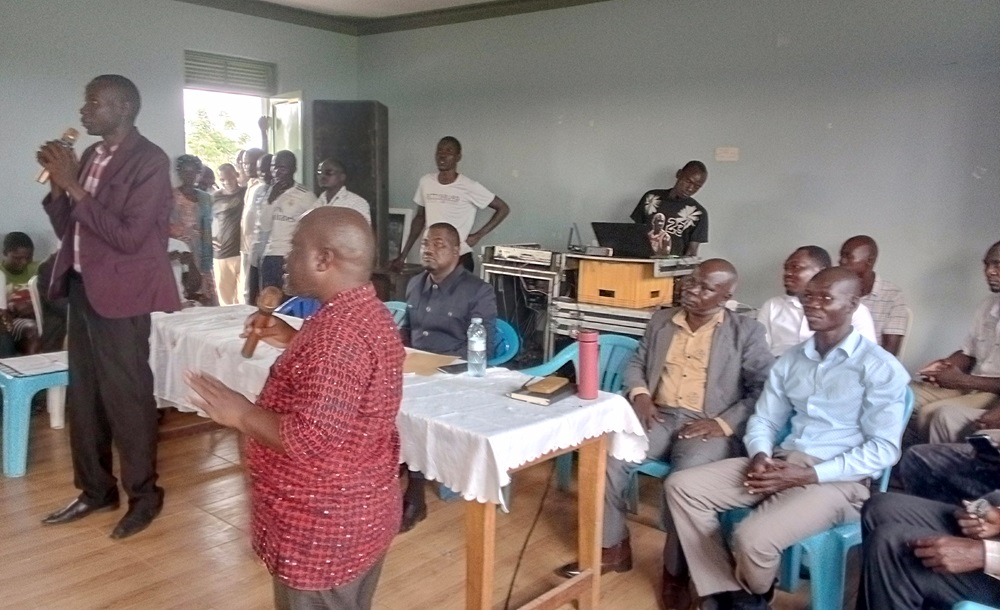
With the implementation of the Fair Business Practices action, more businesses are engaging in infrastructure procurement processes for the period 2019/20 on the Government Procurement Portal (GPP). In addition, we have observed an increase in number of bids per tender which reveals an increase in competition and a more level playing field for businesses.
In Uganda, public procurement accounts for over 65% of the national budget; of this, at least 25% is spent through infrastructure projects implemented across the various Government Ministries, Departments, and Agencies (MDAs) and Local Governments. Public procurement is, therefore, an avenue for the private sector to partake in the “national cake.” Hence, procurement is a source of income for the private sector through public contracts. Given the overarching goal of the private sector in development, there is a need for interventions geared towards boosting the contracting capability of the private sector, particularly small and Medium Enterprises (SMEs). Genuine competition leads to low prices and better products which results in resources either being saved or freed up for use on other goods and services.
CoST Uganda uses its Multi-Stakeholder working arrangement to voice private sector concerns;
To ensure there is competition in the public procurement system in the country, the Procurement law in Uganda stipulates that all procurement and disposal shall be conducted in a manner that maximizes competition and achieves value for money. In addition to the open bidding methods, the Public Procurement and Disposal of public Assets Authority (PPDA) regulations, rules and methods for procurement of supplies, works and non-consultancy services, Procuring and Disposing Entities shall obtain at least three bidders for the restricted bidding, request for quotations and micro procurement methods (PPDA Act, 2003), when this is done, markets for the private sector are opened and competition is ensured.
To strengthen joint advocacy and participation of the private sector in public infrastructure procurement processes, CoST Uganda facilitated stakeholders with evidence from analysis[1] of disclosed infrastructure procurement data, on a sample of 19 high-spending Procuring and Disposing Entities including Local and Central Governments. The analysis revealed that 51% of the data required by the CoST Infrastructure Data Standard[2] proactively without request was not disclosed. Low disclosure affects competition and is likely to breed into corruption and bribery acts in procurement. Collusion and corruption are distinct problems within public procurement, yet they may frequently occur in tandem, and have mutually reinforcing effects.
CoST Uganda conducted targeted sector engagements, issue based advocacy and journalist training sessions. These engagements were also used as platforms for the private sector to engage with Government on issues that most often affected them from engaging in public infrastructure procurement processes. The private sector has shared how the CoST engagements have been helpful in enabling them access information to inform their participation in procurement.
Private sector speaks out;
The Private sector (contractors and Consultants) appreciates the intervention for it has given them a platform to raise their concerns. More firms are coming up to speak against unfair business practices, the business associations have been empowered to speak for their memberships. For instance, UNABCEC submitted a paper to the Committee of Parliament on Economic Affairs on concerns in regards to fairness in procurement during COVID-19 demanding for emergency procurement guidelines, on their end, UACE engaged PPDA and Ministry of Finance, Planning and Economic Development on the issue of delayed payments, high interest rates affecting businesses and proposals for the development of the local content regulations. This experience reveals the growing campaign and private sector ability to demand for fairness in the way infrastructure projects are planned and delivered.
At a CoST Uganda online webinar[3], UNABCEC Director, Ms. Elizabeth Muhebwa noted that, one of the most pressing issue affecting the private sector was the VAT requirement. “VAT is required to be remitted by the constructing firms every 15th day of the month (when contracts are running) and yet invoices of construction firms are not yet paid by respective Procurement Entities by then. This was a big challenge to the private sector as in most cases, many of them have lost property or been penalized due to delayed remittance of VAT, PEs never consider such situations while delaying payments. It is thus important that, issues of VAT and delayed payment are given more consideration” PPDA committed to raise the concerns on delayed payments with the Ministry of Finance to have it addressed.
Resulting from the engagements, there has been an increase in demand for transparency and fairness in infrastructure delivery processes. Using the CoST approach of Multi-stakeholder arrangement, and working as a trusted partner for both Government and the business sector, we have noted that businesses through their line associations of UNABCEC and UACE have been empowered to demand for integrity and fair business practices.
Government responds;
Disclosure enables access to information, builds trust and encourages more businesses to engage in procurement processes. With improved access to information, businesses are able to prepare bankable bids that will enable them to get businesses. Resulting from this action, engagements with the private sector and Government have enabled us to record an increase in the number of firms engaging with the Government. The stakeholder forums for the private sector have revealed that over 220 businesses have engaged in fair business practices. With our baseline of 1.6 bids per tender in 2019, we have recorded tremendous improvements in competition observed through the trends in the number of bids per tender rising to 12.5 in 2020.
At a CoST online policy awareness webinar[4], Ms. Doreen Kyazze, the Manager Performance Monitoring at PPDA noted that, Electronic Government Procurement which had been rolled out to ten (10) entities in the Central Region with anticipation to have all entities registered in by 2023 will increase efficiency substantially, and reduce interface between providers and public officials. Online procurement will also strengthen monitoring of high value procurements by the high spend entities. PPDA would also Scale-up initiatives that sensitize the public on public procurement through media campaigns, strategic engagements with stakeholders and the use of social media platforms. PPDA further committed to collaborate with Civil Society Organisations to support the monitoring of Government Projects and report any irregularities. Conduct trainings and sensitizations for suppliers and citizens to increase their knowledge on the Public Procurement law. Suspending/debarring unethical providers from participating in public procurement or disposal proceedings. Working with professional / regulatory associations to de-register unethical members’ effectiveness and; further action against unethical public and private sector is undertaken in collaboration with other enforcement agencies such as Criminal Investigation Department (CIG), Directorate of Public Prosecution (DPP) and the Inspectorate of Government.
At the high-level event[5] on 25th June 2020, stakeholders agreed that it was important that the local content law is interpreted, “the analysis report revealed that at least 99% of local firms were benefiting from infrastructure procurements in the last three years; this confuses as the data disclosed does not reveal who of these 99% firms are locally owned by Ugandans and those that are foreign-owned domestically. It is important that this data is disclosed to enable stakeholders to engage effectively and efficiently. These engagements on fair business practices are very important and should be annually recognized, the analysis should also be taken up as an annual event. There is a need to sit together and gather data on how both local and foreign firms are engaging in public infrastructure procurement processes. The problem is that enemies of Uganda are Ugandans themselves most people do not engage with integrity and do not want to see good things being done, to the extent that they will frustrate good things being done” Dr. Levi Kabagambe, Board Member, PPDA.
With the Business Integrity Initiative, the gaps in disclosure of infrastructure projects are becoming less common. PPDA in principle has adopted the CoST Open Contracting for Infrastructure Data Standard (OC4IDS) and its eventual alignment to the Electronic Government Portal (E-GP) will be done in the medium term. As an incentive for increased disclosure, a rewarding system for most compliant entities was established by the PPDA and CoST Uganda, and the top four most compliant[6] entities were awarded on 26th November 2020. CoST Uganda upon request by PPDA has established a process to identify factors affecting private sector participation in public infrastructure procurement processes.
In his remarks and response to the CoST findings on infrastructure data analysis at the 1st high-level meeting[7], Mr. Benson Tumuramye, the Executive Director, Public Procurement and Disposal of Public Assets Authority (PPDA) emphasized that “to avert the challenges affecting private sector’s full participation, and to enhance fair business practices; a discussion on the amendment of the reservation guidelines i.e. (local contractors capacity building, disadvantages citizens, SMEs) is ongoing” in addition to our commitments, PPDA will review and provide clarity on the local content law and promote fair business practices”
In his remarks at the publication of the 4th Assurance Report, the Minister of Works and Transport, who is also the Champion of CoST Uganda, Gen. Edward Katumba Wamala expressed Government’s commitment to CoST Uganda’s work and the growing action for fair business practices. ”My Ministry will work with CoST Uganda and all other stakeholders to close the gaps identified in the projects assured. The NRM Government fully supports the principles of fair business practices and transparency when handling matters that concern the public and indeed public resources. There is no doubt therefore that the entire Government leadership up to the highest level is in support of independent monitoring of public infrastructure projects, as long as the findings and recommendations are used for purposes of continuous improvement.” Hon. General Katumba Wamala, MoWT Affirming the relevance of the Assurance process.
[1] https://www.cost.or.ug/download/fair_business_practices_gpp_infrastructure-data-analysis-report_june-2020-_press/
[2] https://infrastructuretransparency.org/cost-tools-and-standards/
[3] https://www.cost.or.ug/contractors-and-consulting-engineers-call-on-government-to-address-vat-issues-and-delayed-payment-at-a-cost-uganda-policy-awareness-webinar/
[4] https://www.cost.or.ug/be-just-and-fair-in-infrastructure-delivery-stakeholders-implored-as-cost-uganda-inaugurates-stakeholder-engagements-on-integrity-issues-in-public-infrastructure/
[5] https://www.cost.or.ug/government-commits-to-the-fair-business-practices-for-infrastructure-projects-campaign/
[6] https://www.cost.or.ug/cost-partners-with-the-ppda-uganda-to-reward-most-compliant-entities/
[7] https://www.cost.or.ug/government-commits-to-the-fair-business-practices-for-infrastructure-projects-campaign/



